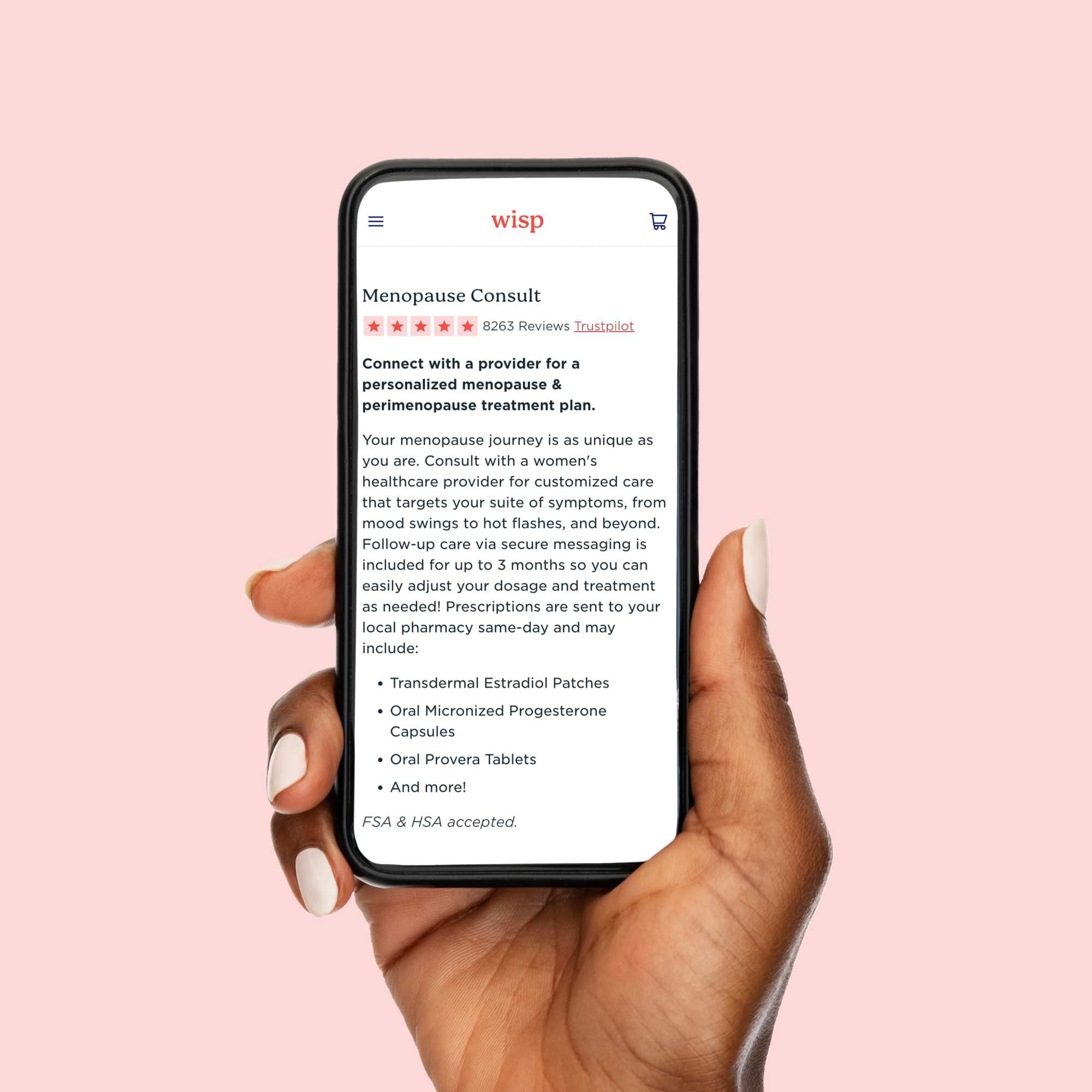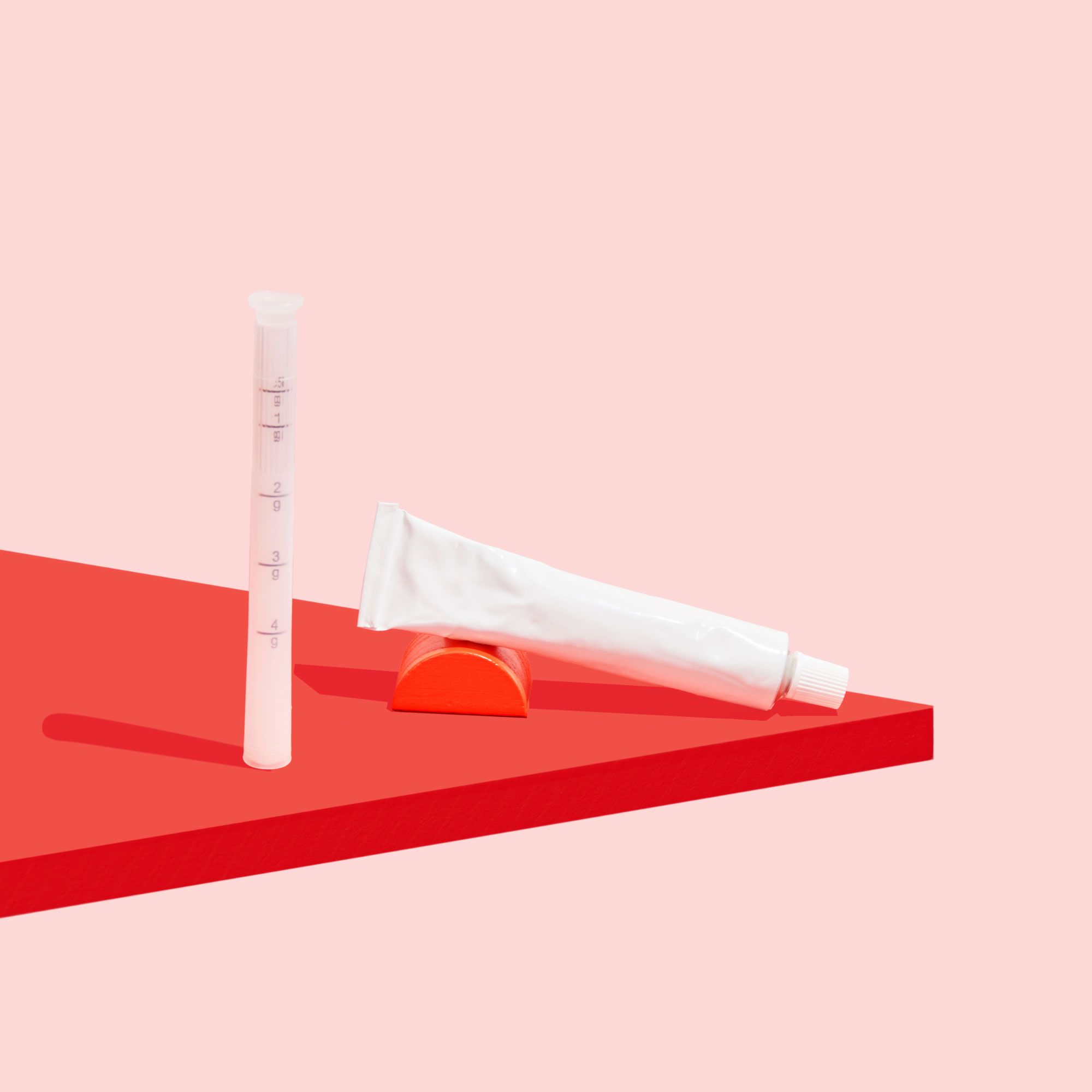
The Menopause Diet:
5-Day Plan to Lose Weight
By Caitlin Beale, MS, RDN from Nourish
October 17, 2024
Key Takeaways:
- Menopause is a natural stage in a woman's life characterized by significant hormone changes that affect weight and metabolism.
- A diet pattern that includes high-fiber, protein-rich, anti-inflammatory foods can support a healthy weight.
- Following a meal plan specifically designed for menopause can kickstart your journey.
The hormone changes associated with menopause can bring a handful of unwanted symptoms, from physical to emotional. While it’s a natural and inevitable part of every woman’s life, you don’t have to suffer.
Many women find themselves gaining weight in midlife despite maintaining a healthy lifestyle. It can feel frustrating, but there is good news! A few simple but essential tweaks to your diet can help alleviate menopausal symptoms and promote weight loss. As an added plus, these same habits can help reduce your risk of certain chronic diseases that become more common with age.
In this article, we'll share a 5-day meal plan, plus tips to get started, specifically designed to help you feel good during menopause and beyond.
Menopause Weight Loss Basics: Getting Started
Getting started with menopause weight loss requires a step back to understand the changes in your body. These changes, dictated by shifting hormones, impact your metabolism, energy levels, brain health, bone health, and more.
While menopause refers to a specific point in time (one calendar year since your final period), the hormone shifts leading up to menopause begin during perimenopause. Perimenopause is the transition period before menopause officially starts and can start seven to ten years before menopause.
During perimenopause, sex hormones like estrogen and progesterone fluctuate, leading to irregular periods and symptoms like hot flashes, mood swings, and difficulty sleeping.
Estrogen plays a crucial role in regulating the menstrual cycle during reproductive years, but its influence also extends to metabolism and body composition. As estrogen levels drop during menopause, the body's ability to metabolize fat and sugar is impacted, potentially leading to imbalances in blood sugar and cholesterol levels. Additionally, estrogen influences your metabolic rate (the number of calories you burn at rest) and where you hold fat, often increasing visceral fat in the abdominal region.
All of these changes can require a closer look at your food and eating habits. In some ways, it can feel like everything that used to work to keep you at a healthy weight no longer has the same effect, but adjustments can help you find a new balance.
Foods to Focus on for Menopause Weight Loss
Studies suggest that women who follow anti-inflammatory diet patterns like the Mediterranean Diet are less likely to gain weight and may even experience fewer symptoms of menopause, like hot flashes or mood shifts. However, it is important to note that while wine is included in this diet, research has shown that moderate alcohol consumption has been linked to an approximate 30-50% increased risk in breast cancer—if you are at risk, it’s a good idea to consult with your healthcare provider about alcohol consumption.
The Mediterranean Diet focuses on minimally processed foods like fruits, vegetables, whole grains, and legumes while limiting red meat and processed foods high in saturated fat.
Healthy fats like olive oil are a big part of any anti-inflammatory diet, too. Studies have found that extra-virgin olive oil intake is associated with fewer physical and psychological menopause symptoms.
Weight loss during menopause also means prioritizing protein and fiber to help the body stay satisfied and keep blood sugar levels steady. These nutrients support lean body mass, bone health, cholesterol, blood sugar, and abdominal fat.
Soy is another nutrient that may provide relief during menopause. It contains phytoestrogens, plant-based compounds that mimic the effects of estrogen in the body. Research suggests that soy foods like tofu, edamame, and soy milk may help ease symptoms like hot flashes in some women. Soy foods are also high in protein, helping you reach your daily recommendations.
It can feel overwhelming, however, to put this all into practice. That's why seeking help from a registered dietitian nutritionist (RDN) specializing in menopause weight loss can be helpful. They can provide personalized guidance and meal plans to support your weight loss goals during menopause.
Meal Plan for Menopause Weight Loss
This meal plan is your starting point for menopause weight loss and better health. It's rich in foods that support weight loss, bone health, and hormonal balance.
Use this as a guide to create meals that help you reach your goals and adjust portion sizes based on your calorie needs. You can also follow two or three days and repeat instead of cooking different meals every day.

Menopause Consult Online
$99
Customized care for menopause & perimenopause symptoms including estrogen & progesterone hormone replacement.

Non-Hormonal Vaginal Moisturizer
Starting at $60
Hormone-free moisture for all life stages, including breastfeeding, postpartum, and menopause.

Estradiol Vaginal Cream
Starting at $20
A hormonal cream that soothes vaginal dryness caused by menopause, or during postpartum, especially with breastfeeding.
Day 1
Day one highlights foods with healthy fats and fiber, including avocado, hemp seeds, almond butter, and salmon. Protein-rich eggs, Greek yogurt, and chicken help you meet your protein goals.
- Breakfast: Avocado toast with whole grain bread, scrambled eggs, and a side of berries. Snack: Greek yogurt with chopped nuts and apples.
- Lunch: Grilled chicken salad with mixed greens, walnuts, bell pepper, tomato, hemp seeds, and balsamic vinaigrette made with extra virgin olive oil.
- Dinner: Baked salmon with quinoa, roasted broccoli, and sweet potato.
- Snack: Celery with almond butter.
Day 2
Day two continues healthy fats and high protein foods, plus high-fiber quinoa and lentils for extra protein and blood sugar support.
- Breakfast: Veggie omelet with feta cheese, spinach, tomatoes, and mushrooms. Snack: Hummus with veggie sticks like carrots, cucumber, bell peppers.
- Lunch: Quinoa bowl topped with black beans, grilled chicken, avocado, and salsa.
- Dinner: Grilled shrimp skewers with lentil noodles and marinara sauce (add a scoop of Greek Yogurt as a substitute for sour cream if desired).
- Snack: Handful of almonds with an apple.
Day 3
On day three, chia seeds offer extra healthy fats, fiber, and cottage cheese, a simple way to boost protein intake. Brussels sprouts provide an extra serving of cruciferous vegetables, which contain a compound called [sulforaphane] (https://pubmed.ncbi.nlm.nih.gov/35268851/) that may have protective effects against breast cancer.
- Breakfast: Overnight oats made with rolled oats, almond milk, and chia seeds, topped with fresh fruit (made ahead the night before).
- Snack: Celery sticks filled with cottage cheese and sprinkled with everything bagel seasoning.
- Lunch: Turkey wrap with whole grain tortilla, lettuce, tomato, avocado, and mustard.
- Dinner: Baked chicken breast with roasted sweet potatoes and Brussels sprouts.
- Snack: Hard-boiled egg(s) with a slice of whole-grain toast.
Day 4
Breakfast on day four includes smoked salmon, an easy and delicious way to get your omega-3 fatty acids. Edamame, tofu, black beans, and quinoa offer a healthy dose of plant protein.
- Breakfast: Whole grain toast with smashed avocado, smoked salmon, and sliced tomatoes.
- Lunch: Quinoa and black bean chili with Greek yogurt and shredded cheese. Snack: Small protein smoothie made with frozen berries, spinach, almond milk, and protein powder.
- Dinner: Grilled tofu stir-fry with brown rice and mixed vegetables.
- Snack: Edamame hummus with whole-grain crackers.
Day 5
On day five, you’ll enjoy a savory breakfast bowl high in protein and fiber to keep you satisfied throughout the day. Having peanut butter and dark chocolate chips with a banana gives you a sweet treat reminiscent of childhood and contains healthy fat, protein, and antioxidants from the chocolate chips.
- Breakfast: Quinoa breakfast bowl with poached eggs (or cooked per preference), sautéed spinach, cherry tomatoes, and feta cheese.
- Snack: Banana slices with peanut butter and dark chocolate chips.
- Lunch: Grilled chicken wrap with hummus, cucumber, tomato, and feta cheese.
- Dinner: Baked cod with quinoa pilaf and roasted asparagus.
- Snack: Kale chips made with olive oil and sea salt.
Tips for Meal Preparation
While a meal plan can be a great start, you still need to plan and prepare. Even the best intentions can fall apart when faced with a busy schedule or unexpected cravings.
Here are some tips to help you successfully prepare your meals for the week ahead:
- Set aside a specific time each week to plan and prep your meals. This may mean you grocery shop on Saturdays and meal prep on Sundays, or you may prefer to do it all in one day. Find what works best for you and stick to it.
- Create a shopping list before heading to the grocery store. A list will help keep you focused and prevent impulse purchases.
- Invest in quality meal prep containers that are BPA-free, microwaveable, and dishwasher-safe. It may sound simple, but the right containers make storing and reheating your meals easier throughout the week.
- Rinse and chop produce as soon as you get home from grocery shopping to save time during meal prep. This small amount of prep also makes you more likely to grab fruit and veggies for a snack since they are already prepped and ready to eat.
- Cook proteins in bulk. Grilled or baked chicken, fish, tofu, and beans can be portioned and added to meals throughout the week.
Takeaway
Menopause weight loss can be tricky because of all the natural changes in your body—perfectly normal but sometimes frustrating.
Adding nutrient-dense, hormone-supportive foods to your diet can help you manage your weight and boost your well-being. Keep in mind that food is just one piece of the puzzle—getting enough sleep, staying active, managing stress, and having strong community connections are just as important for a healthy, balanced life during this time.
How a Dietitian Can Help
If you’re struggling with weight gain during menopause, a dietitian can help. Not only will a dietitian work with you to provide tailored recommendations to your body’s needs, but they can also act as your accountability partner to support you through your successes and setbacks. Plus, they will answer all your questions about food choices, supplements, diet trends, and more so you stay on the right track with science-based information.
Menopause may be challenging, but with the right tools and support, you can navigate through and come out even stronger and healthier on the other side.
Nourish makes it easy and affordable to hit your health goals with a personal telehealth dietitian and our mobile app. Talk to a dietician covered by your insurance, develop healthy habits that last, and take your first steps on your health journey today!


